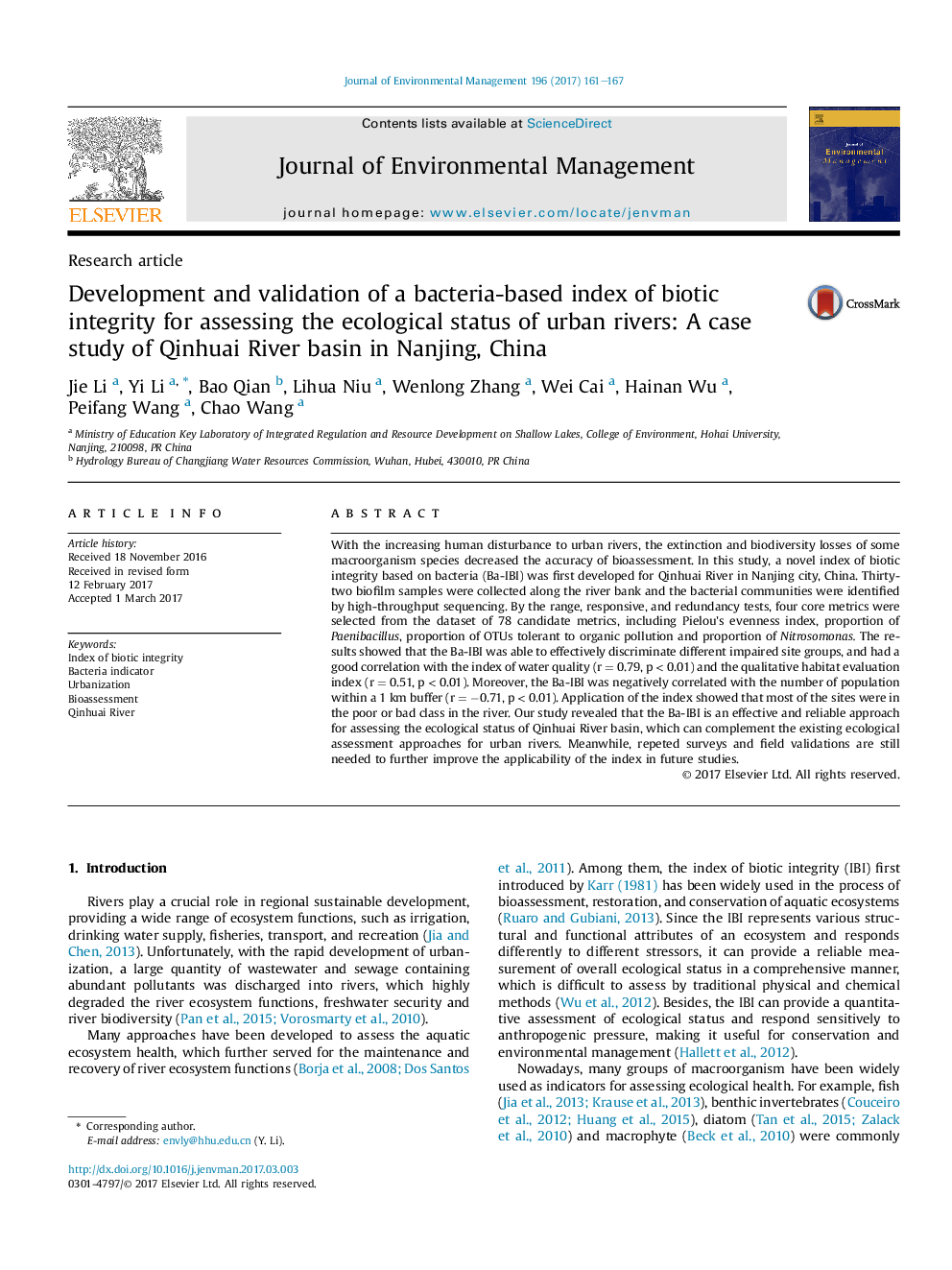| Article ID | Journal | Published Year | Pages | File Type |
|---|---|---|---|---|
| 5116660 | Journal of Environmental Management | 2017 | 7 Pages |
Abstract
With the increasing human disturbance to urban rivers, the extinction and biodiversity losses of some macroorganism species decreased the accuracy of bioassessment. In this study, a novel index of biotic integrity based on bacteria (Ba-IBI) was first developed for Qinhuai River in Nanjing city, China. Thirty-two biofilm samples were collected along the river bank and the bacterial communities were identified by high-throughput sequencing. By the range, responsive, and redundancy tests, four core metrics were selected from the dataset of 78 candidate metrics, including Pielou's evenness index, proportion of Paenibacillus, proportion of OTUs tolerant to organic pollution and proportion of Nitrosomonas. The results showed that the Ba-IBI was able to effectively discriminate different impaired site groups, and had a good correlation with the index of water quality (r = 0.79, p < 0.01) and the qualitative habitat evaluation index (r = 0.51, p < 0.01). Moreover, the Ba-IBI was negatively correlated with the number of population within a 1 km buffer (r = â0.71, p < 0.01). Application of the index showed that most of the sites were in the poor or bad class in the river. Our study revealed that the Ba-IBI is an effective and reliable approach for assessing the ecological status of Qinhuai River basin, which can complement the existing ecological assessment approaches for urban rivers. Meanwhile, repeted surveys and field validations are still needed to further improve the applicability of the index in future studies.
Related Topics
Physical Sciences and Engineering
Energy
Renewable Energy, Sustainability and the Environment
Authors
Jie Li, Yi Li, Bao Qian, Lihua Niu, Wenlong Zhang, Wei Cai, Hainan Wu, Peifang Wang, Chao Wang,
